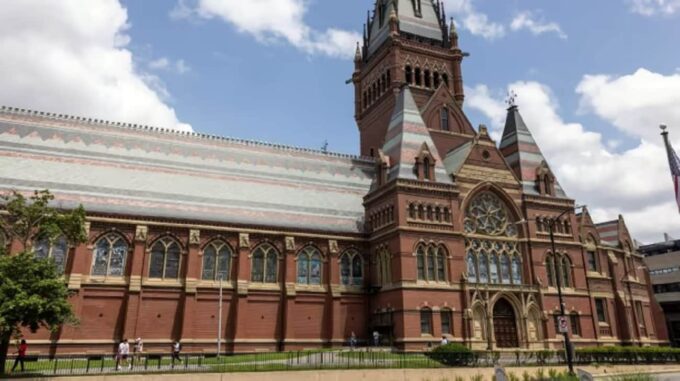Harvard has filed a lawsuit against the administration of Donald Trump, declaring a fight for its rights and financial autonomy

This is yet another manifestation of tension between one of the most prestigious American universities and the U.S. government during a period when the political and financial situation in the country remains tense and unpredictable. On Monday, April 21, Harvard University officially submitted a lawsuit to the federal court, accusing the White House of unfair and, according to them, illegal cuts to federal funding for scientific research and educational programs. According to sources, including The Harvard Crimson newspaper, the reason lies in the fact that the Trump administration allegedly seeks to "damage the university for defending constitutional rights," which the university feels compelled to contest through the courts. According to the complaint, the government has effectively launched an unconstitutional campaign to freeze and restrict financial support that could amount to another billion dollars, in addition to the existing $2.2 billion. The goal of these measures is to force Harvard to change its management structure, policies regarding faculty and student hiring, and to review approaches to academic programs and research. Harvard legal representatives emphasized in their statement that the conditions proposed by the government are "a clear compromise with the principles of academic self-governance." They stress that the proposed option is either to allow the state to control the university or to jeopardize its ability to make scientific breakthroughs and innovations. "The compromise offered by the government is either submission to micromanagement or the risk of turning universities into instruments of politics, which is contrary to the Constitution and fundamental principles of academic freedom," the statement reads. Specifically, the lawsuit concentrates on accusing the Trump administration of illegally freezing billions of dollars in federal funds for research at Harvard and its affiliates. The university asserts that these actions aim to pressure the institution into making certain internal structural and policy changes, which are unlawful and unconstitutional. It is recalled that on March 10, the university temporarily suspended the hiring of new faculty and administrative staff due to "financial uncertainty." The statement was made amid worsening financial conditions, which, according to university leadership, resulted from intensified scrutiny by the Trump administration and growing pressure from authorities to suppress and control the university. By the end of March, media reports indicated that the Trump administration had begun active steps to reduce or entirely cut federal funding for Harvard. In particular, there was talk of freezing portions of funding that could reach up to $9 billion if the most severe measures were applied in response to alleged anti-Semitism in the higher education institution. On April 15, it became officially known that the university refused to comply with the new requirements of the administration, specifically regarding increased government oversight over its internal decisions and management processes. The university emphasized that considers these demands illegal and unconstitutional and is unlikely to comply. Local media reported that the Trump administration was reviewing decisions to provide nearly $9 billion in funding, focusing efforts on increasing control over the university and its affiliates. This conflict has already sparked significant public and academic resonance. For Harvard, this legal process is not just an attempt to protect its financial interests but a fight to preserve its academic standards and independence from political interference. For the Trump administration, it is another attempt to tighten control over higher education institutions and to implement its vision of reforms in education and science. The court process is ongoing, and its outcomes may influence not only the fate of one of the most prestigious universities in the United States but also the future of funding for research-driven projects and the independence of the academic sphere in the country.

